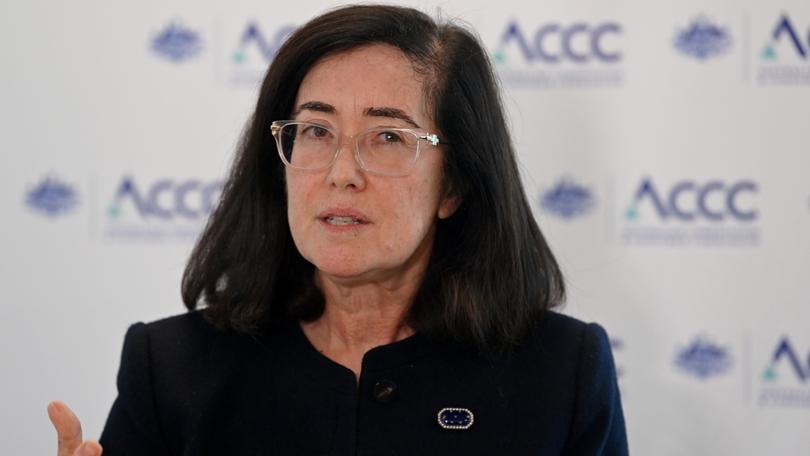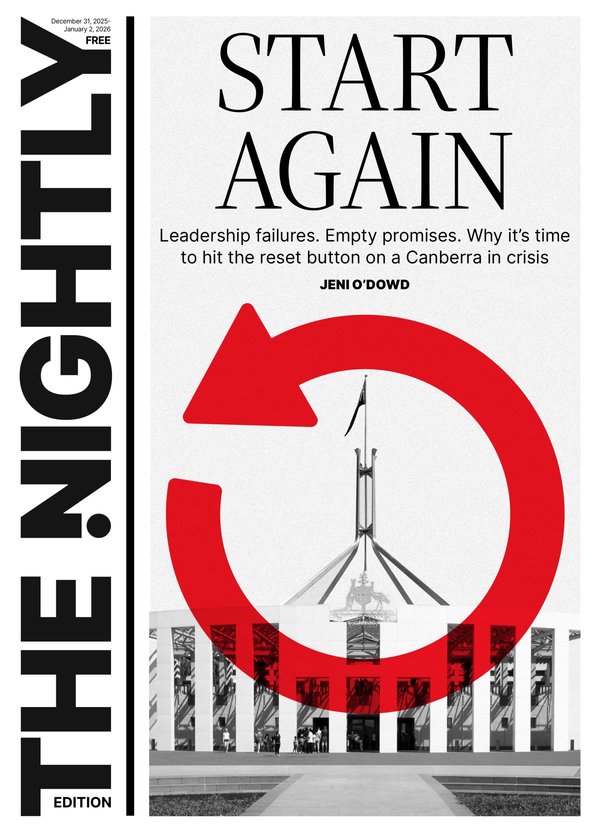ACCC chair Gina Cass-Gottlieb says new merger regime for corporate takeovers will improve public confidence

Competition watchdog chair Gina Cass-Gottlieb says an overhaul of the nation’s merger laws will benefit consumers through increased transparency which will weed out anti-competitive buyouts.
Ms Cass-Gottlieb, a former competition lawyer before her appointment as head of the Australian Competition and Consumer Commission, on Wednesday said reforms outlined by Treasurer Jim Chalmers would allow for better informed and protected consumers.
But business groups are wary, saying closer consultation is needed to ensure companies aren’t saddled with further red tape.
Sign up to The Nightly's newsletters.
Get the first look at the digital newspaper, curated daily stories and breaking headlines delivered to your inbox.
By continuing you agree to our Terms and Privacy Policy.Dr Chalmers has detailed plans for the biggest overhaul in Australia’s corporate merger laws in 50 years in a bid to lift productivity and prevent further economic harm from anti-competitive mergers occurring without authorities being notified.
The biggest change, to begin in January 2026, will require companies to notify the ACCC ahead of mergers. Australia is just one of three OECD economies that does not mandate regulatory notification, which Dr Chalmers said had meant some mergers had occurred when they should not have.
Mergers in the preceding three years will also be considered when approving proposals, a measure of addressing what’s been described as “creeping acquisitions” where larger companies swallowed up smaller rivals but escaped regulatory notice.
“A fit for purpose merger regime in a time of increasing concentration is very important,” Ms Cass-Gottlieb told a law lecture hosted by the ACCC and the Law Council of Australia in Sydney.
“Thresholds will be set at a level where we do see the mergers the matter.
“(It) does make clear the strengthening or entrenching of a position of substantial market power is a substantial lessening of competition.”
Australian Chamber of Commerce and Industry chief executive Andrew McKellar said the right balance must be struck.
“For small businesses and consumers get the best deal, we must be able to compete against global corporates and grow businesses in Australia that are at a global scale and competitive in taking on the global giants,” he said.
“Mergers are healthy and have a significant benefit so we have to be careful and about tying them in red tape.”
Business Council of Australia chief executive Bran Black said the ACCC had averaged 171 days to process merger authorisations so steps to ensure the body was adequately resourced would be welcome.
“There is still a lot of detail that is to be determined and further consultation will be required with business on many important elements in this package,” he said.
“We need to ensure Australia’s merger regime doesn’t add further red tape to businesses.”
Shadow Treasurer Angus Taylor blasted the changes and Dr Chalmers’ approach to his portfolio.
“None of this will restore the collapse in Australians’ standard of living. This is a Treasurer who is all spin and no substance,” he said.
“It’s important the government doesn’t confuse competition policy with competitiveness of the economy. Labor’s policies on energy, IR and tax are making Australia a less attractive place to do business.”
Ms Cass-Gottlieb said a public register of proposed mergers and legislated time frames for their approval would help build confidence in the new regime.
Elsewhere, Ms Cass-Gottlieb said the ACCC was working to better protect consumers from unfair practices not. It was also focusing on essential service providers, to help make users aware of better deals than their legacy offers.
“It will remove frictions that impede customer switching,” she said, emphasising consumers needed to be free to switch much more freely than had been allowed.
She also pointed to the work the ACCC was doing with the National Anti-Scam Centre to “better prevent and detect the scourge of scams” which led to great losses across the economy.
The International Monetary Fund overnight released new data showing the number of cyberattacks globally has almost doubled since pre-pandemic levels. Nearly one-fifth of all incidents has affected financial firms, with the IMF urging beefed up national cybersecurity strategies to prevent further financial loss.
